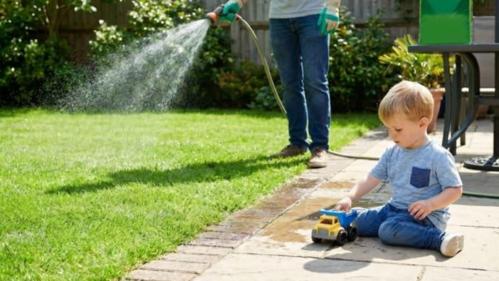 If your varicose veins were purely a result of your pregnancy, you did not have them before your pregnancy, you are not overweight, and you do not have a family history of varicose veins, then it is very likely that they will shrink significantly in the three or four months after your baby is born. Varicose veins and spider veins (the small capillaries that rise to the surface, and form spider web or starburst patterns) are common during pregnancy, and usually does not cause pain or discomfort. They are, however, unsightly.
If your varicose veins were purely a result of your pregnancy, you did not have them before your pregnancy, you are not overweight, and you do not have a family history of varicose veins, then it is very likely that they will shrink significantly in the three or four months after your baby is born. Varicose veins and spider veins (the small capillaries that rise to the surface, and form spider web or starburst patterns) are common during pregnancy, and usually does not cause pain or discomfort. They are, however, unsightly.
Treating varicose veins and spider veins yourself and helping them to shrink faster is usually a combination of a few different tactics. Exercising, and getting blood flowing is a good way to start, as is elevating your legs as much as possible, and never crossing your legs or ankles when you sit. Sitting and standing motionless for extended periods should also be avoided, and if you want to avoid varicose veins, or minimise them, remember to move around.
Compression stockings, available from medical supply stores, are another way to treat varicose veins. They are tighter at your ankles, and become looser higher up on your leg, which encourages blood flow to the heart. You may also want to consider losing weight, particularly if you were overweight before you got pregnant, and it is not only baby weight you are carrying.
There are also specialised, cosmetic surgical procedures that you can have done to remove varicose veins, but you will need to visit a specialist in order to assess what can be done, and how. You should also remember that you may be genetically predisposed to getting varicose veins, and in that case, any surgery or cosmetic procedure may not yield permanent results. This type of surgery can also be expensive, and since it is usually done for cosmetic reasons only, you may not be covered under your health insurance policy.





